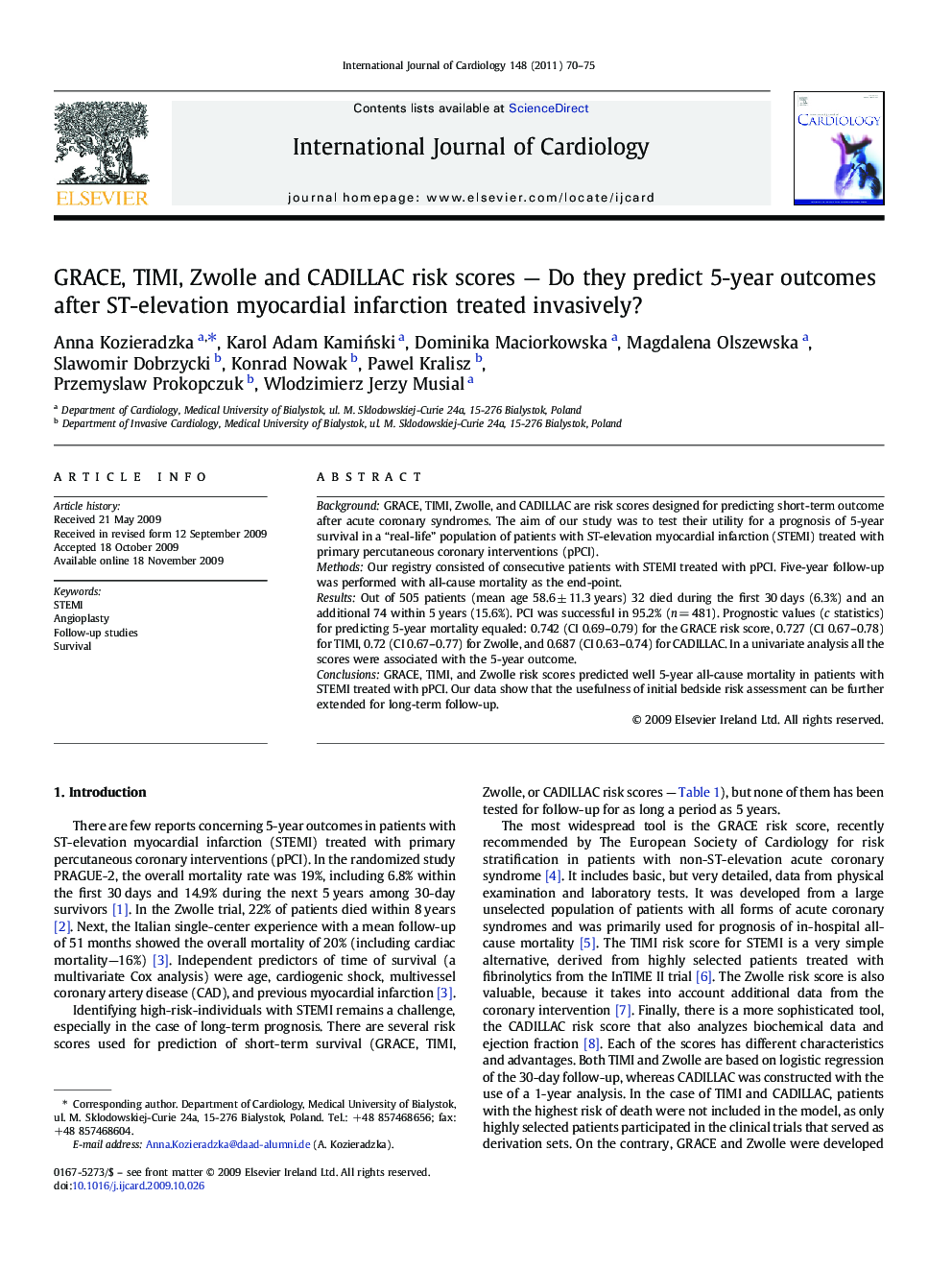| Article ID | Journal | Published Year | Pages | File Type |
|---|---|---|---|---|
| 2930506 | International Journal of Cardiology | 2011 | 6 Pages |
BackgroundGRACE, TIMI, Zwolle, and CADILLAC are risk scores designed for predicting short-term outcome after acute coronary syndromes. The aim of our study was to test their utility for a prognosis of 5-year survival in a “real-life” population of patients with ST-elevation myocardial infarction (STEMI) treated with primary percutaneous coronary interventions (pPCI).MethodsOur registry consisted of consecutive patients with STEMI treated with pPCI. Five-year follow-up was performed with all-cause mortality as the end-point.ResultsOut of 505 patients (mean age 58.6 ± 11.3 years) 32 died during the first 30 days (6.3%) and an additional 74 within 5 years (15.6%). PCI was successful in 95.2% (n = 481). Prognostic values (c statistics) for predicting 5-year mortality equaled: 0.742 (CI 0.69–0.79) for the GRACE risk score, 0.727 (CI 0.67–0.78) for TIMI, 0.72 (CI 0.67–0.77) for Zwolle, and 0.687 (CI 0.63–0.74) for CADILLAC. In a univariate analysis all the scores were associated with the 5-year outcome.ConclusionsGRACE, TIMI, and Zwolle risk scores predicted well 5-year all-cause mortality in patients with STEMI treated with pPCI. Our data show that the usefulness of initial bedside risk assessment can be further extended for long-term follow-up.
